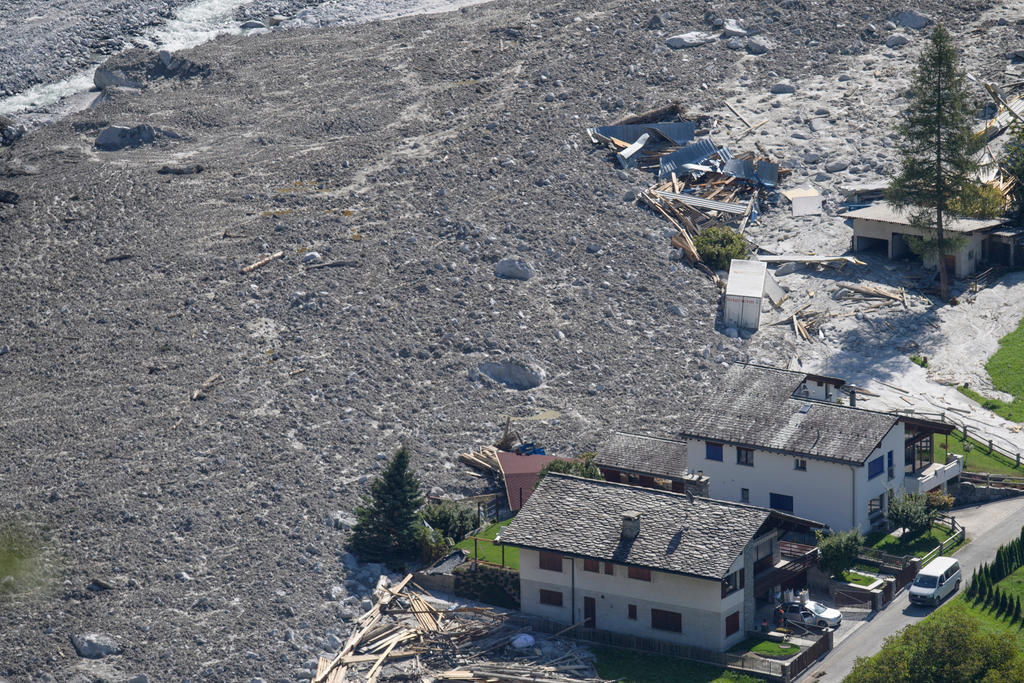Swiss Re chief fears for catastrophe bond investors

Global markets for “alternative capital” underwriting natural catastrophe and other insurance risks are flashing warning signals similar to the US mortgage industry before the global financial crisis, the chief of Swiss Re has warned.
Financial products such as catastrophe bonds, which pay out like an insurance policy, have boomed in recent years, competing with conventional insurance companies to cover risks such as hurricanes and earthquakes.
For investors, they have offered decent returns that are not correlated with other financial markets.
However, the market is coming under increasing strain. A series of natural catastrophes over the past two years has meant that many of the securities have had to pay out. On top of that, insurance prices have been flat and rising US interest rates make them less attractive to investors.
“There could be disappointed investors,” Christian Mumenthaler, chief executive of the world’s second-biggest reinsurance company, told the Financial Times. “If some people are not that knowledgeable and rely on people who don’t take the risk, I think that’s always a slightly dangerous set-up.”
Like in the US mortgage market, in which loans were “sliced and diced” with ultimate investors having little understanding of the underlying assets, the alternative insurance capital market was witnessing “a separation between those who understand the risk and those who take the risk”, Mr Mumenthaler said.
“Some of the aspects of this alternative capacity market reminds me [of] some of the patterns you could see in the mortgage business before the crisis.”

He cited the example of an investor who thought the market attractive so hired an expert manager. “Even if these experts say, ‘look, this is not the best moment in the cycle’, there’s a tendency to say, ‘well, it’s a strategic asset allocation, we’ve made our decision, just deploy it’ . . . I’ve certainly seen cases where all the margin would be eaten up by the fees.”
Mr Mumenthaler argued that a cyclical downturn in insurance capital could benefit traditional, strongly-capitalised reinsurers such as Swiss Re, which act as backstops to conventional insurers. “There was this huge enthusiasm for alternative capacity. When you have losses, I think some clients come to realise it’s actually also quite good to have somebody with a very strong balance sheet.”
This year is likely to be another expensive one for both traditional reinsurers and investors which have put money into insurance-linked securities.
According to Swiss Re, insured losses from natural and man-made catastrophes will reach $79bn this year. That is the fourth-highest figure on record, although below the $150bn that they had to pay out last year.

More
Disaster relief: what really works?
There are hopes in the industry that all the payouts will lead to price increases in the January 1 renewal season, after several years of flat or declining rates.
Swiss Re’s boss signalled that the Zurich-based company was keen to profit from weaknesses in the insurance market to make acquisitions.
In its main reinsurance business, “it will be a consolidation play because size matters and you could have huge synergies in that field” but Swiss Re would also be keen on acquisitions in its primary insurance business, which sells cover to corporates.
“Why we don’t do it is because everything I’ve seen so far . . . I couldn’t explain to shareholders. That’s the killer criteria — can I go in front of shareholders at the price that people want and say ‘this makes sense’?”
Mr Mumenthaler held out little prospect of consolidation targets becoming significantly cheaper in the near term, despite falls in company share prices globally.
“You know how it is in the UK, London real estate market. When prices go down, nobody wants to sell because you still have, psychologically, the highest price in your head. So even if equity markets go down, I think you will have some reluctance of people to adapt to the new levels.”
Copyright The Financial Times Limited 2018

In compliance with the JTI standards
More: SWI swissinfo.ch certified by the Journalism Trust Initiative


You can find an overview of ongoing debates with our journalists here. Please join us!
If you want to start a conversation about a topic raised in this article or want to report factual errors, email us at english@swissinfo.ch.